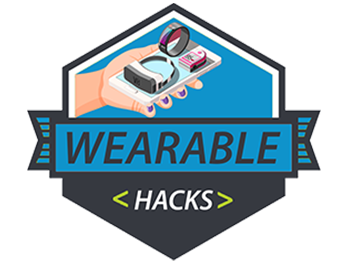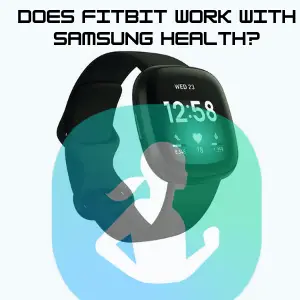Is Fitbit Inspire 2 Heart Rate Accurate
For the heart rate results of Fitbit Inspire 2 to be accurate, those results should be as close as possible or even equal to those of medical-grade electrocardiographs (EKG). But is that the case? Although Fitbit Inspire 2 offers some legitimate health benefits, researchers maintain that you should not use the fitness tracker for medical purposes.
According to a Stanford University School of Medicine study, Fitbit smartwatches like the Inspire 2 measure your heart rate with less than a five percent error rate. It also reported that skin color and body mass index affected the device’s accuracy. However, after using the Inspire 2 for over six months, I found the heart rate pretty accurate and insightful.
According to Dr. Mark Gilinov, the Chairman of the Thoracic and Cardiovascular Surgery Department, you need a chest-worn monitor for more accurate heart rate information. Unlike Fitbit Inspire 2, which uses an optical sensor, chest-worn EKGs have a transmitter and a receiver that track your heart rate with significant accuracy.
Is the Inspire 2 heartrate tracking accurate?
Fitbit Inspire 2 offers an acceptable heart rate accuracy (<5%). In a study to determine the accuracy, University of Oregon professors Benjamin Nelson and Nicholas Allen concluded that the fitness trackers “appear to be useful.” Since the error rate of the fitness tracker is within a safe range, the professors agree it can show your cardiac activity.
Although it is not 100% accurate, the collected heart rate data is beneficial for recreational use. For instance, you can use the data to make appropriate health and fitness decisions. Besides, Fitbit Inspire 2 uses your heart rate and weight data to estimate the number of calories you burn every day.
The heart rate data collected by Fitbit Inspire 2 over some time can give you a deeper understanding of your heart health. The smartwatch does not only monitor your heart rate. It also monitors the stages and quality of your sleep and automatically tracks many kinds of exercises. However, Fitbit’s heart rate tracking is not a replacement for medical EKGs.
However, Inspire 2’s heart rate tracking is more accurate and acceptable than the calorie burn measurements. Several things can make the Fitbit Inspire 2 underestimate your heart rate. Factors such as exercise, skin color, body mass index, and the sensors affect the tracker’s heart rate accuracy.
Fitbit Inspire 2 offers solid sporting features and passive health tracking. Unlike most fitness trackers, the Inspire 2 has a simple and unobtrusive design. It is an entry-level fitness heart rate, sleep, and breathing tracker that is quite affordable. After using the Fitbit Inspire 2 for about six months, I found the heart rate pretty accurate and insightful.
Read also: Cheap Fitness Tracker with GPS
Factors affecting the heart rate accuracy of Fitbit Inspire 2
Here are some of the factors affecting the heart rate accuracy of your Fitbit Inspire 2:
- Age of the device: Newer Fitbits are more accurate and precise than those used for ages. A Fitbit Inspire 2 that has been used for more than one or two years, for example, may exhibit some functional and operational deteriorations.
In that case, you may notice a decline in heart rate tracking performance.
- Exercise: Researchers found that fitness trackers are more accurate when you are at rest than when exercising. During a workout, Fitbit Inspire 2 can undercount your heartbeat because of the movements of the fitness tracker on your arm.
Sweat can also contact the sensor during exercise, lowering the accuracy. Generally, Fitbit Inspire 2 registers a more accurate resting heart rate than exercise heart rate.
- Body mass index: The higher the body mass index (BMI), the less accurate the heart rate measurement and vice versa. High BMI means the body’s fat content is high.
Therefore, Fitbit’s heart rate sensors do not penetrate your skin enough to provide the correct measurements. However, Fitbit Inspire 2 heart rate results tend to be accurate among slimmer people than fat people.
- Sensors: Fitbit Inspire 2 uses optical sensors that measure your pulse from your wrist. Although the sensitivity of the optical sensors is pretty significant, it does not reflect the accurate electrical activity of the heart.
On the other hand, chest-worn electrocardiograms are accurate because it has more electrodes or sensors. Some sensors transmit the heart signal, and others receive it, giving you a more accurate heart rate reading with the medical EKGs than with Fitbit Inspire 2.
- Where you wear the device: You can wear your Fitbit Inspire 2 on your wrist, ankle, hip, chest, or lapel. The heart rate accuracy of Fitbit Inspire 2 varies significantly across these positions.
For example, the Inspire 2 could be more accurate on your chest than on your ankle or wrist due to the proximity to the heart region. The wrist and the ankle are far away from the heart and may occasionally overestimate or underestimate your heart rate.
- Skin color: Skin color also affects the heart rate accuracy of Fitbit Inspire 2. The fitness tracker uses photoplethysmography technology to read your blood through the skin. White skin allows more light to reach your bloodstream and reflects enough light to the sensors for reading.
On the other hand, darker skins reduce light penetration and reflection. Therefore, Fitbit Inspire 2 may provide slightly inaccurate results on darker skins than lighter skins. Despite the differences, the results are within the acceptable error margins. You can still use the Fitbit Inspire 2 to make impactful health and fitness decisions.
Fitbit heart rate not working or inaccurate? Try this quick fix
These wearable hacks are essential for reducing false heart rate measures and getting helpful insights from your fitness tracker.
Here are some ways to fix your Fitbit Inspire 2 heart rate not working or inaccurate:
Reset and restart your Fitbit Inspire 2
Resetting and restarting the fitness tracker returns it to the software state it was in when you bought it. Back up your heart rate data before resetting and restarting your Fitbit Inspire 2.
Also, charge it to 100% first. If corrupted files or apps cause the problem, a factory reset will clear it. Afterward, Fitbit Inspire 2 should show slightly accurate heart rate measurements.
How to reset Fitbit Inspire 2
- Go to Settings
- Tap Clear User Data
- Hold the screen for three seconds and release it when prompted
- A vibration indicates a successful factory reset
Clean the sensor
After prolonged usage, dirt and debris can clog Fitbit Inspire 2 sensors. These may reduce the light intensity necessary for reading your heart rate. Dip a soft piece of cloth in isopropyl alcohol and use it to wipe the back of your Inspire 2.
Pay special attention to the sensors. Also, avoid pouring the alcohol directly on the fitness tracker. A clean sensor will read your heart rate correctly than a dimmed sensor. In addition, dry the sensors between workouts that make you sweaty.
Tighten the band
A loose band means the sensor is not in place – it keeps moving up and down your wrist. A loosely worn fitness tracker has episodes of tracking and not tracking your heart rate. It is essential to tighten the band to get more accurate heart rate results from the Fitbit Inspire 2. Not too tight and not too loose either.
The point is that your Fitbit should fit snugly at one point on your wrist. In that case, it will record heartbeat changes with significant precision.
Wear Fitbit Inspire 2 with the sensors facing the inner side of your wrist
The inner side of your wrist has a thin skin, which allows more light to penetrate and be reflected by the Fitbit sensors. Blood vessels are also thick in that area.
Fitbit Inspire 2 can get more accurate heart readings from the inner side of your wrist than the “normal” part of your wrist. Similarly, if you have an option for wearing Fitbit Inspire 2 on your hip or chest area, do it.
Conclusion
Fitbit Inspire 2 is accurate enough for recreational purposes. It will give you heart rate results that are closer to medical-grade electrocardiograms. With the data, you can make healthy nutrition and fitness goals. In some cases, you can share your health metrics with your physician to help you glean insightful information from your heart rate.
Did you have any heart rate accuracy concerns with your Fitbit Inspire 2? How did you go about it? Feel free to share with us in the comments.







